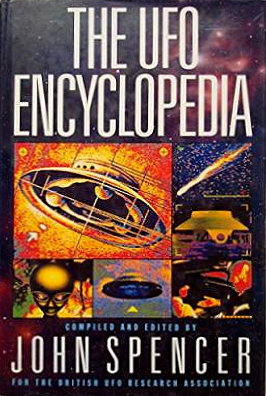Randall
J. Randall Murphy
There's been a recurring debate and discussion about ufology that focuses on what it is and how it should be treated. In this thread I'm going to attempt to outline and refine my views on that, and they will be reflected on the USI website. During this process ideas, comments, suggestions, and constructive criticisms are welcome. To start off, we've already had some relevant discussion here:
- Ufology & Pseudoscience
- Damage Control - Ufology in Flames
- Ufology Culture Clips and Comics
- What Is The Point?
- The Mount Rushmore of Ufology
The aim is to move ufology toward academic acceptance by having a well defined vision of what it is and how it can be studied from an academic perspective. After much deliberation my position how to do this is that ufology a field of study is too broad to place within the narrow confines of the scientific method and therefore is more suited to the faculty of Humanities rather than the Sciences. We begin with working definitions for UFO and Ufology:
UFO or ufo
Pronunciation: yoo-ef-oh ( plural UFOs ) or yoo-foe ( plural ufos ) noun
Ufology ( pronounced yoo • faw • la • jee )
Ufology is loosely defined as the study of UFOs. More accurately it's defined as the array of subject matter and activities associated with an interest in UFOs ( see chart below ).
My approach is to look at ufology as if it were an academic course or a section in a library and outline what facets such a course or section would include. I have several hundred titles in my own collection, so I've already put a fair bit of thought into this. Here's a brief diagram that roughly outlines the way I look at the field. Those interested in contributing constructively to the refinement of this diagram can get in touch and I'll email them the yEd file.
NOTE: If anyone wishes to object to or offer changes to the above definitions, then do so by providing references as to why the specific reasoning for them is faulty and how it could be improved. The reasoning is outlined on the USI website under the associated articles. They can be reached by the links in my signature line. Objections that are simply mere proclamations or do not address the reasoning will be considered frivolous. We've already dealt with a couple of objections on other threads, so I respectfully request that they not be regurgitated here unless something of relevance and importance has been missed.
- Ufology & Pseudoscience
- Damage Control - Ufology in Flames
- Ufology Culture Clips and Comics
- What Is The Point?
- The Mount Rushmore of Ufology
The aim is to move ufology toward academic acceptance by having a well defined vision of what it is and how it can be studied from an academic perspective. After much deliberation my position how to do this is that ufology a field of study is too broad to place within the narrow confines of the scientific method and therefore is more suited to the faculty of Humanities rather than the Sciences. We begin with working definitions for UFO and Ufology:
UFO or ufo
Pronunciation: yoo-ef-oh ( plural UFOs ) or yoo-foe ( plural ufos ) noun
- A craft of alien origin.
- The object or phenomenon that is the focus of a UFO report or investigation.
Ufology ( pronounced yoo • faw • la • jee )
Ufology is loosely defined as the study of UFOs. More accurately it's defined as the array of subject matter and activities associated with an interest in UFOs ( see chart below ).
My approach is to look at ufology as if it were an academic course or a section in a library and outline what facets such a course or section would include. I have several hundred titles in my own collection, so I've already put a fair bit of thought into this. Here's a brief diagram that roughly outlines the way I look at the field. Those interested in contributing constructively to the refinement of this diagram can get in touch and I'll email them the yEd file.
NOTE: If anyone wishes to object to or offer changes to the above definitions, then do so by providing references as to why the specific reasoning for them is faulty and how it could be improved. The reasoning is outlined on the USI website under the associated articles. They can be reached by the links in my signature line. Objections that are simply mere proclamations or do not address the reasoning will be considered frivolous. We've already dealt with a couple of objections on other threads, so I respectfully request that they not be regurgitated here unless something of relevance and importance has been missed.
Last edited:




 !
!

